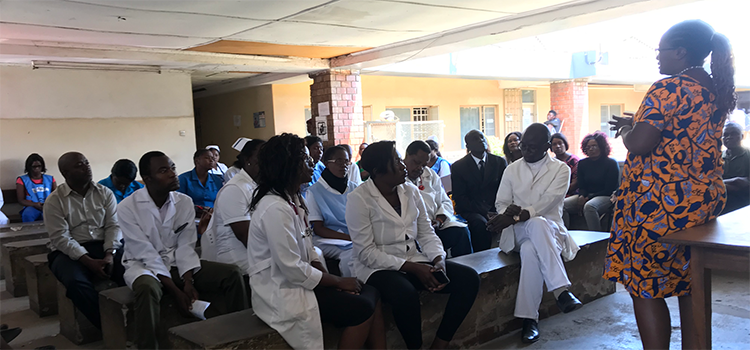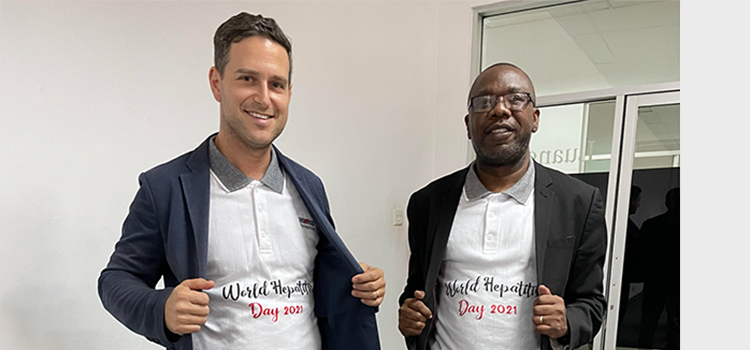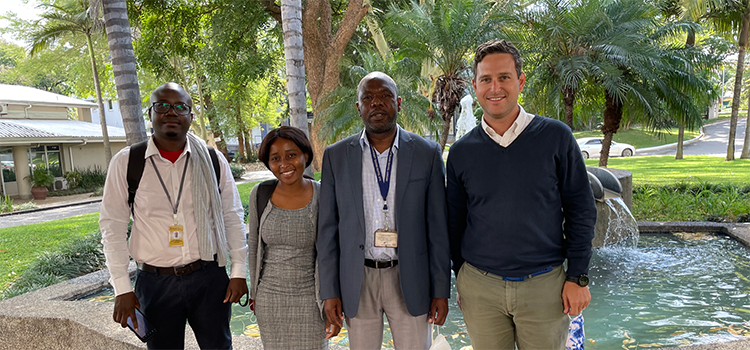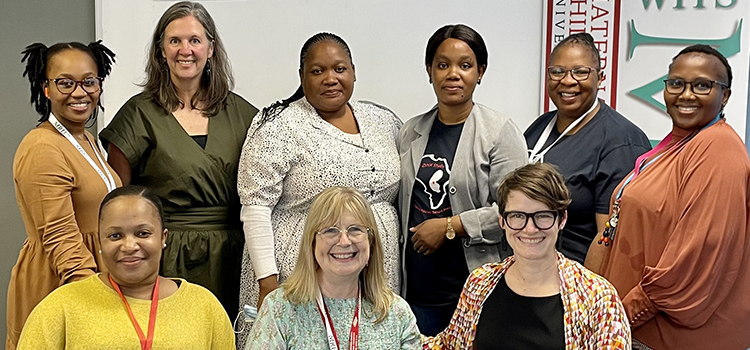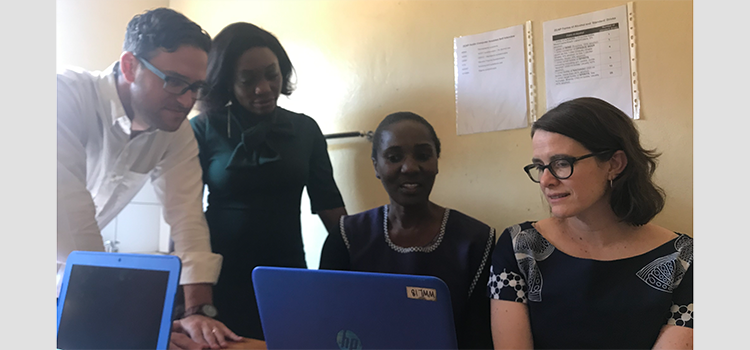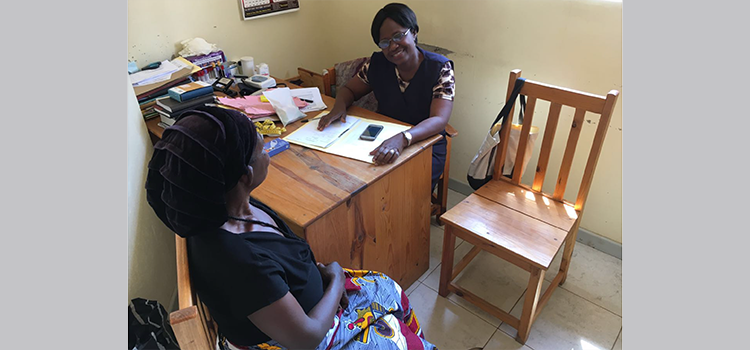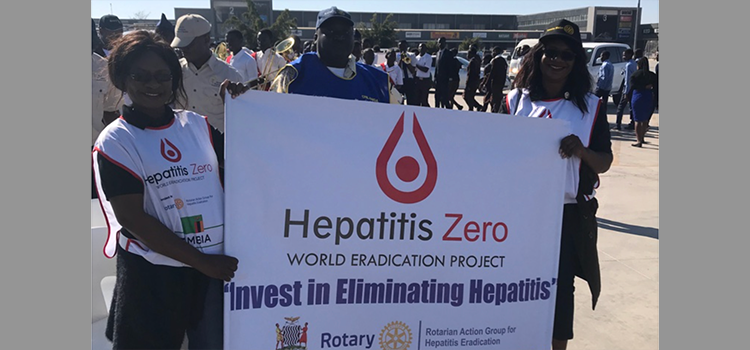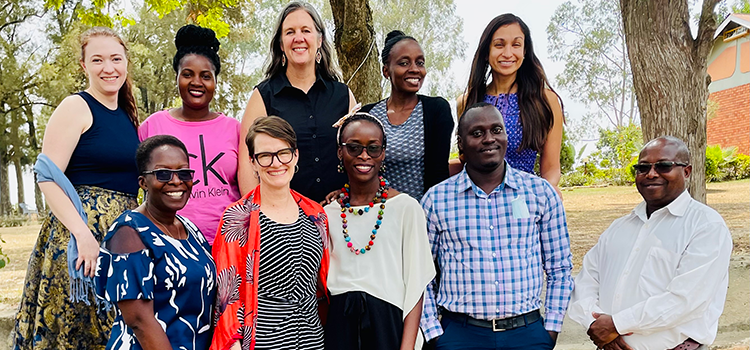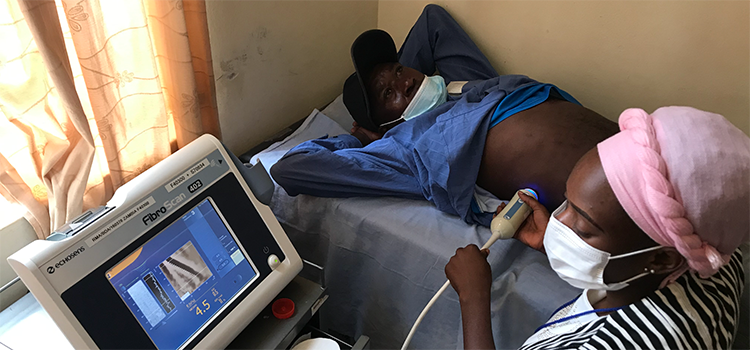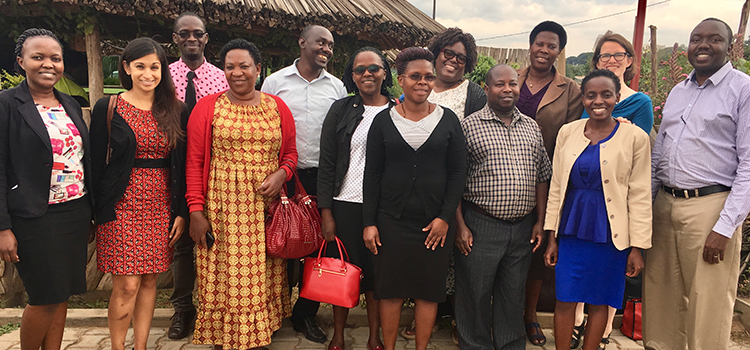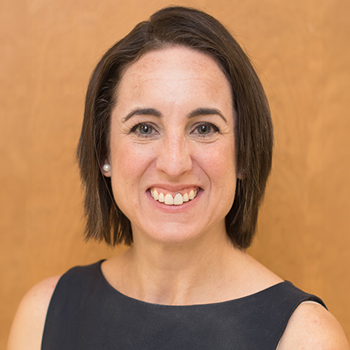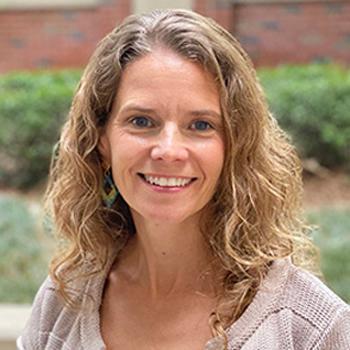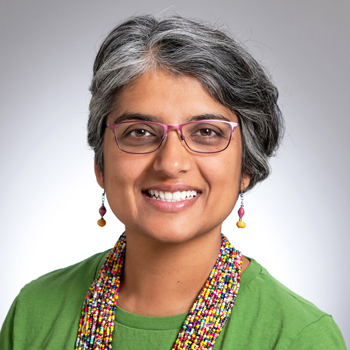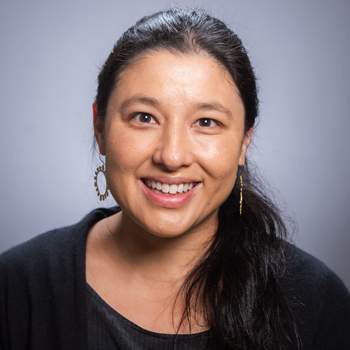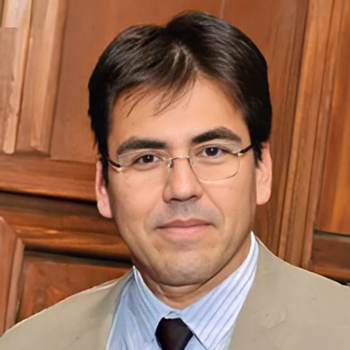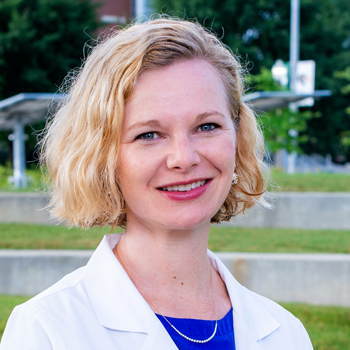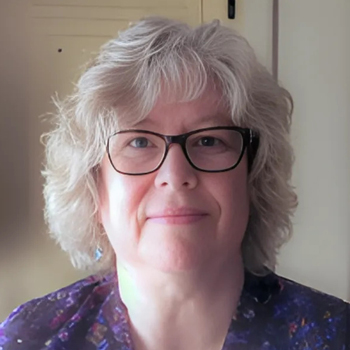The Global Infectious Diseases Research Section in the Division of Infectious Diseases brings unique strengths to influence the prevention and treatment of infectious diseases around the world.
-
Elizabeth Mupinde from CIDRZ briefing the Kanyama 1st Level Hospital staff on a new research project focused on Alcohol and HIV.
Lusaka, Zambia -
Drs. Michael Vinikoor and Edford Sinkala on World Hepatitis Day
Lusaka, Zambia -
Study team meeting for Inpatient Package to Reduce AIDS Death in Zambia (IPADZ). Pictured L to R: Mr. Chiti Bwalya, Ms. Taonga Msuonda, Dr. Edford Sinkala, and Dr. Michael Vinikoor
-
MatCH Research Unit (MRU) - Investigators Lynn Matthews (front row right) and Jenni Smit (front row second from right) and the "Safer Conception for Women - Understanding use of Periconception PrEP" study team in Durban South Africa (December 2022)
-
Drs. Lynn Mathews and Mike Vinikoor with Tukiya Kanguya and Carolyn Chibundi Sichela discussing audio assisted computer self-interviews to screen for behavioral health issues in patients with HIV at Matero Level 1 Hospital
Lusaka, Zambia -
Annie Kanunga, Hepatitis-focused research nurse at University Teaching Hospital
Lusaka, Zambia -
World Hepatitis Day event
Lusaka, Zambia -
Exploring Intersectional Stigmas Among Men Living With HIV n Uganda Shine Study
Back Row L-R: Madeline Pratt, Rosemary Kansiime, Tricia Smith, Moran Owembabazi, Pooia Chitneni, M.D. Front Row L-R: Esther Atukunda, Ph.D. (Project Director), Lynn Matthews, M.D., Eunice Kanini, Johnmary Tumwine, Deogratias Tukwasiibwe
-
CIDRZ Research Nurse Anita Mumba performing a ‘Fibroscan’ to check for liver cirrhosis at University Teaching Hospital
Lusaka, Zambia -
Health Families Clinic Team
Mbarara, Uganda June 2018 -
Hepatitis R01 Study Team Training
Lusaka, Zambia
UAB Global Infectious Diseases Research – Topics and Geographic Focus
Broadly, we focus on chronic infections of global health importance, including HIV, tuberculosis, viral hepatitis, malaria and syphilis and comorbidities that complicate clinical outcomes in patients with these infections. We employ a wide range of methodologies including translational science, clinical trials, and increasingly implementation science. Our cross-disciplinary team of researchers are currently working to find solutions to infectious diseases in Cameroon, Uganda, Kenya, Malawi, Zambia, South Africa, and India and applying lessons learned to the relevant epidemics in Alabama.
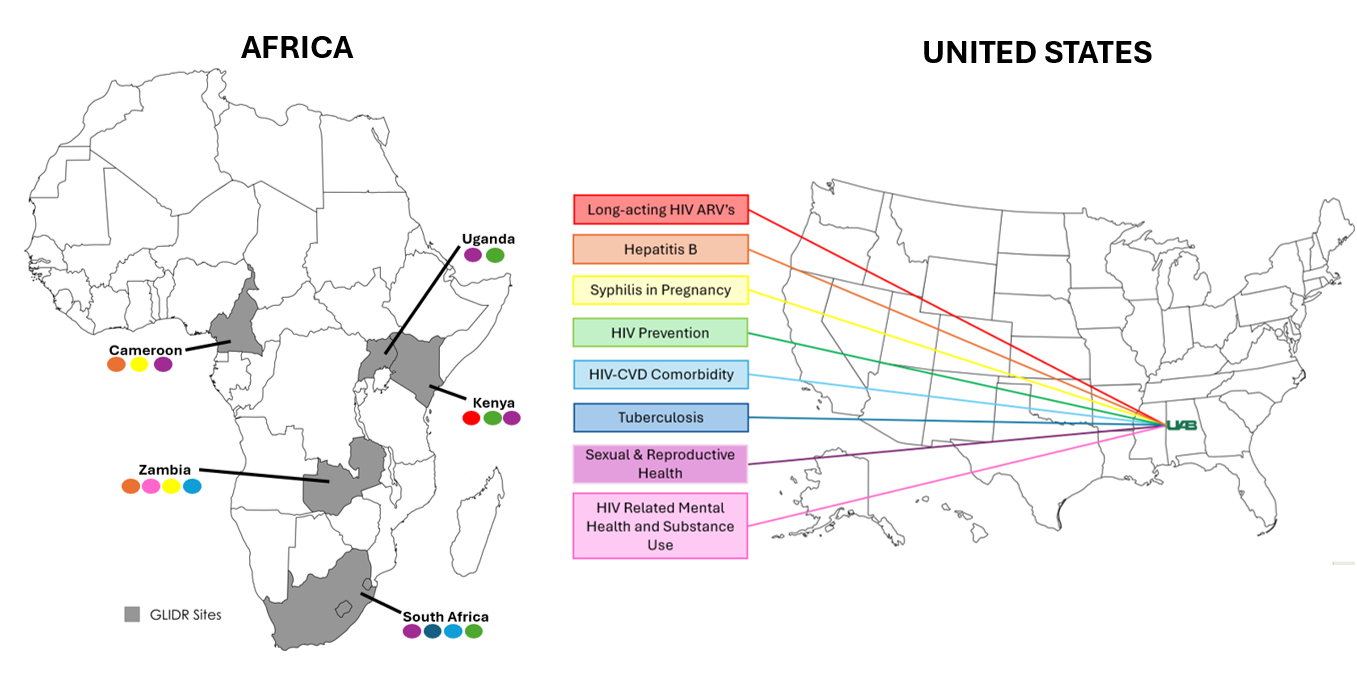
Trainees
All UAB ID global heath faculty have research opportunities for mentees and trainees to partner on projects with local stakeholders, investigators and community partners. These projects can be tailored to the individual trainee in order to learn or strengthen research skills related to a wide range of topics – from clinical and translational science to community-based-participatory research to high-impact implementation science – training opportunities abound. Research mentees inside and outside UAB include students, trainees and early career investigators based abroad or in the United States. Additional project information can be found below.
Key Faculty
Lynn Matthews, MD, MPH, serves as the Associate Director for Global Health Research and Partnerships at the Mary Heersink Institute of Global Health (MHIGH) and is a Professor of Medicine in the Division of Infectious Diseases at the Heersink School of Medicine, UAB. She also leads the Global Infectious Diseases Research section within the division.
Dr. Matthews’ research centers on developing and evaluating medical and behavioral interventions aimed at reducing HIV incidence, particularly in the context of reproductive health for both men and women. Since the mid-2000s, her work has been primarily based in Durban, South Africa, and Mbarara, Uganda. Since joining UAB in 2019, she has expanded her focus to the U.S. Deep South, spearheading projects to increase HIV testing access, understand HIV risk among Black women, promote HIV PrEP for adolescent girls and young women, and enhance the HIV care continuum in Alabama. Her research is supported by multiple NIH grants.
Carolyn Bolton-Moore, MD, is a South African physician who has been living and working in Zambia since 2004. Having started her career working in pediatric HIV, her research interests have broadened over the last 20 years to include interventions to improve treatment uptake and adherence in adolescents, sexual and reproductive health and Implementation science. She has worked on NIH funded and pharmaceutical-funded pediatric clinical research projects since 2002, initially at the Perinatal HIV Research Unit in Johannesburg, South Africa (an NIH IMPAACT and HVTN site) and from 2004 to 2017 at the CIDRZ Clinical Research Site in Lusaka, Zambia.
As Chief Medical Officer at CIDRZ Dr. Bolton-Moore oversees a wide portfolio of research ranging from clinical research to the social sciences. She has extensive experience and expertise in treating adults, adolescents, and children. She is a protocol co-chair of IMPAACT P2017, an exciting phase 1/2 clinical trial, the first study to use long acting injectable antiretrovirals in adolescents. She is also MPI on an NIH UG1 award, part of the PATC3H-IN network, focusing on improving mother-daughter communication and sexual health decision making in adolescent girls. She has served as a Co-Investigator on the Southern African region of the International Epidemiologic Databases to Evaluate AIDS (IeDEA) network since 2008.
Jodie Dionne, MD, MSPH, is an Associate Professor of Medicine and Obstetrics and Gynecology. As Director of the Infection in Women and Pregnancy Research Program, Dr. Dionne leads multidisciplinary teams that conduct clinical trials to improve the treatment and prevention of infection in women. In addition to multicenter studies enrolling US participants in STI vaccine and treatment trials, global studies aim to reduce vertical transmission of hepatitis B in Cameroon and to characterize the immune response to congenital syphilis in Zambia and Cameroon. Jodie is also a leader in the NIH/NIAID Infectious Diseases Clinical Research Consortium (IDCRC) and Vaccine and Treatment Evaluation Units (VTEU). This global network works to develop and test vaccines and other therapies to combat infectious diseases.
Beyond research, Dr. Dionne is a member of several global and domestic health advisory committees focused on perinatal infections and sexually transmitted infections. She is a dedicated research mentor for students and trainees in the U.S. and Africa and a physician at the 1917 HIV Clinic in Birmingham.
Renee Heffron, PhD, MPH is an Epidemiologist, Professor of Medicine, and the Director for the Center for AIDS Research at the UAB Heersink School of Medicine where she is based. Her research and mentoring is dedicated to advancing the field of HIV prevention, often by leveraging intersections with reproductive health. Currently, she has been particularly focused on oral PrEP and utilizing a variety of research methods from clinical epidemiology, implementation science, causal inference, behavioral science, and qualitative research to study effectiveness and optimizing delivery of oral PrEP among young women and HIV serodifferent couples. Most of her work has focused on Eastern and Southern African populations, including Kenya, Uganda, and South Africa. Dr. Heffron is a member of the Mary Heersink Institute for Global Health Steering Committee.
Rena Patel, MD, MPH, MPhil, is an Associate Professor of Medicine in the Division of Infectious Diseases at the UAB Heersink School of Medicine. She is a physician-scientist who conducts mixed methods research, using both qualitative and quantitative tools in HIV, reproductive health, and health equity in the United States, Kenya, South Africa, and Botswana. She serves as the Assistant Director of the UAB Minority Health and Health Equity Research Center (MHERC), where she continues examining social determinants of health at the intersections of the HIV and COVID-19 epidemics and leading community engagement in big data efforts. Before joining UAB, she was Assistant Professor in Infectious Diseases at the University of California, San Francisco (UCSF), where she completed her infectious diseases training, and University of Washington (UW). Dr. Patel completed her medical school and residency at Stanford University, MPH from the Harvard School of Public Health, and MPhil in Sociology from the University of Cambridge. She has also worked in India, Tanzania, Ghana, Zimbabwe, and Uganda.
Michael Vinikoor, MD is an Associate Professor of Medicine in the Division of Infectious Diseases at the UAB Heersink School of Medicine, and a Medical Pediatrician trained doctor. He leads a scientific working group on Global Health Reciprocal Innovations at the UAB Center for AIDS Research. Dr. Vinikoor has been deeply engaged in both clinical service and research in South Africa since 2012, while also maintaining active projects in Birmingham. In Africa, he has built strong collaborations, most notably with the Centre for Infectious Disease Research in Zambia (CIDRZ). His research spans various methods, including clinical, translational, qualitative, and implementation science, with a primary focus on individuals living with hepatitis B and/or HIV.
Dr. Vinikoor’s hepatitis B virus (HBV) research investigates the infection’s natural history in Africa and the impact of HIV co-infection, utilizing epidemiological, clinical, and translational approaches. This work is supported by a NIAID MERIT award (R37). Beyond research, he actively contributes to policy and clinical training in hepatitis B, partnering with ministries of health and healthcare providers across Africa. He also co-founded the Hepatitis B in Africa Collaborative Network.
Another core area of Dr. Vinikoor's work addresses HIV and behavioral health comorbidities. Alongside UAB psychologist Karen Cropsey, he co-leads the ZAMBAMA P01 program, which conducts multiple clinical trials evaluating transdiagnostic cognitive behavioral therapy for individuals with HIV and unhealthy alcohol use in both Zambia and Alabama. This initiative also explores biomarkers, stigma, and cost-effectiveness.
Additionally, Dr. Vinikoor's emerging research investigates post-hospitalization transitions of care among people with HIV in Zambia and Malawi, aiming to reduce high post-discharge mortality through implementation science. Dr. Vinikoor is a member of the Mary Heersink Institute for Global Health Steering Committee.
Emily Wong, MD, is an Assistant Professor of Medicine in the Division of Infectious Diseases at the UAB Heersink School of Medicine with a primary focus on tuberculosis (TB) pathogenesis, immunity, and epidemiology, especially in the context of HIV infection. Her research employs a broad spectrum of methods, ranging from molecular techniques to population-based studies. Since 2003, Dr. Wong has lived and worked in South Africa, where she holds a resident faculty position at the African Health Research Institute, overseeing a laboratory and conducting groundbreaking research. Her work aims to establish unique human cohorts to explore core questions about infectious diseases and immune responses, while also examining the interactions between infectious and non-infectious chronic diseases in South Africa. Dr. Wong's research is supported by leading funders, including the NIH, Wellcome, Burroughs Wellcome, and the Bill and Melinda Gates Foundation. Dr. Wong is a member of the Mary Heersink Institute for Global Health Steering Committee.
UAB Faculty with Significant Global Health Experience & Collaborations
German Henostroza, MD, is a Professor of Medicine in the Division of Infectious Diseases at the UAB Heersink School of Medicine. A native of Peru, he has served as the Director of the Gorgas Course in Clinical Tropical Medicine since 2015. This program is a collaborative effort between UAB and the Universidad Peruana Cayetano Heredia. Dr. Henostroza also directs the William Crawford Gorgas Center for Geographic Medicine. He manages the Gorgas Scholarship Award, which offers UAB medical students and residents the opportunity to gain international research experience, as well as a pilot grant program fostering collaborative research between UAB and Peruvian investigators in tropical diseases.
Dr. Henostroza’s research is centered on tuberculosis, specifically focusing on point-of-care diagnostics, vaccines, therapeutic clinical trials, and health systems implementation in vulnerable populations, with a particular emphasis on prisoners. Having lived in Zambia for nine years, he maintains active research collaborations in Zambia, Panama, Peru, and Antigua and Barbuda.
Ellen Eaton, MD, is an Associate Professor of Medicine in the Division of Infectious Diseases at the UAB Heersink School of Medicine. She works at the intersection of substance use and HIV. Her research includes HIV implementation science around screening and management of substance use in rural Alabama and in Zambia. Her research and patient care centers on infectious consequences of substance use and mental illness. Her lab is developing and testing interventions to link patients to addiction treatment and prevention across the HIV care continuum in both acute care and community-based settings. Ellen is the Director of the Office Based Opioid Treatment Clinic at the 1917 HIV Clinic and a member of the leadership team at UAB's Center for Addiction and Pain Prevention Intervention. She is the Chair of the IDSA Grants for Emerging Investigator's (GERM) Program and a member of the IDSA/HIVMA Opioid Working Group.
Barbara Van Der Pol, PhD, MPH, is a Professor of Medicine in the Division of Infectious Diseases at the UAB Heersink School of Medicine. She is trained as a medical laboratory scientist with a PhD in Health Behavior. She is the Director of the UAB Heersink School of Medicine ID STD Clinical Research Organization and ID STD Laboratory. She has recently consulted with the World Health organization on a project designed to set STI research priorities through 2030 and served as an editor for the updated WHO Laboratory Diagnostic Manual.
Currently she is working with the WHO Technical Advisory Group setting standards for diagnostic tests for use in Lower/Middle Income Countries. She worked for many years in sub-Saharan Africa and the Caribbean Regions providing technology transfer for laboratory diagnostics. She is currently the Chair of the Microbiology Devices Panel of the Medical Devices Advisory Committee in the Center for Devices and Radiological Health/Food and Drug Administration. Additionally, she is on the Executive Committee for the International Union Against STI and the President of the International Society for STD Research.
Her research focuses on healthcare utilization behaviors including vaccine acceptability and implementation research related to adoption of highly sensitive point of care testing in clinical settings. She is working with several developers of STI diagnostic products intended for over-the-counter use in the home and the ramifications of the control and management-shift this will necessitate. She is the principal investigator of a multimillion-dollar CDC-funded project looking at mpox vaccine acceptability, DoxyPep training for primary care providers and implementation of syphilis/HIV testing services in remote, rural, marginalized and otherwise underserved populations in the United States.
Administrative Team
 Ikeoluwa Oyewole
Ikeoluwa Oyewole
Program Manager
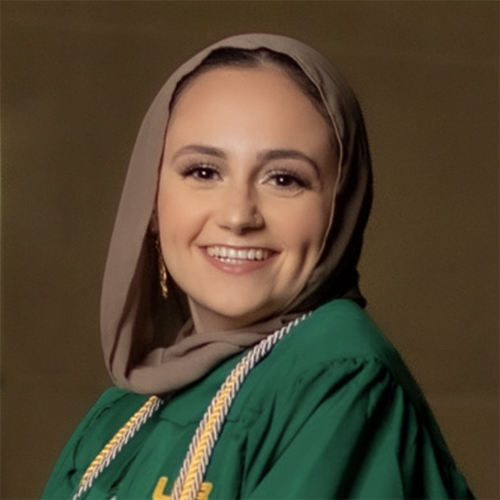 Marwa Abdein, MPH
Marwa Abdein, MPH
Clinical Research Administrator
 Dorothy Buter
Dorothy Buter
Clinical Research Regulatory Coordinator II
 Lee Schultz
Lee Schultz
Program Director II
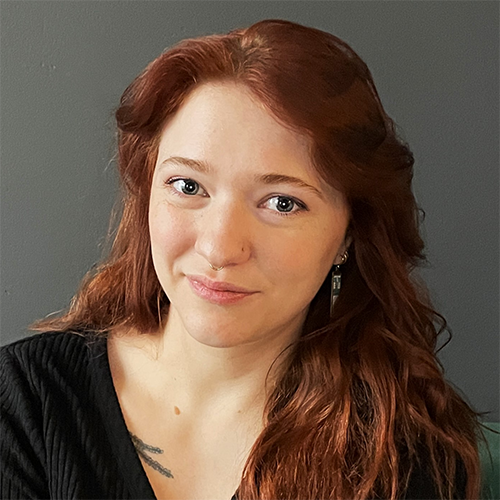 Madeline C. Pratt, MPH
Madeline C. Pratt, MPH
Clinical Research Coordinator III
 Tricia Smith, MSc
Tricia Smith, MSc
Manager, Clinical Research Administration
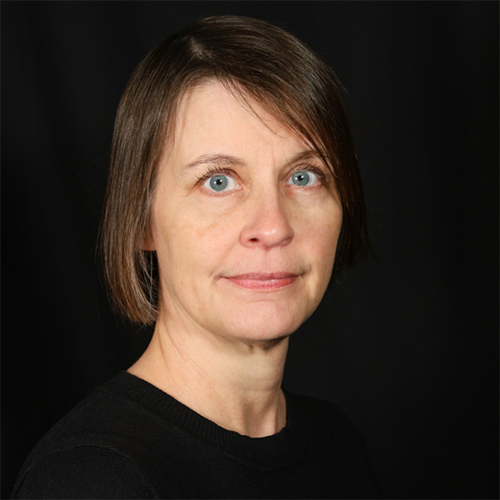 Jamie White, MBA
Jamie White, MBA
Program Director III
Any questions? I'd be happy to help.
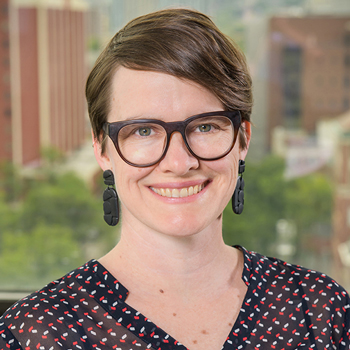 I'd be delighted to talk with you about the Global Infectious Diseases Research at UAB. Contact me for more details.
I'd be delighted to talk with you about the Global Infectious Diseases Research at UAB. Contact me for more details.
Lynn Matthews, MD, MPH, Director
Send an Email
